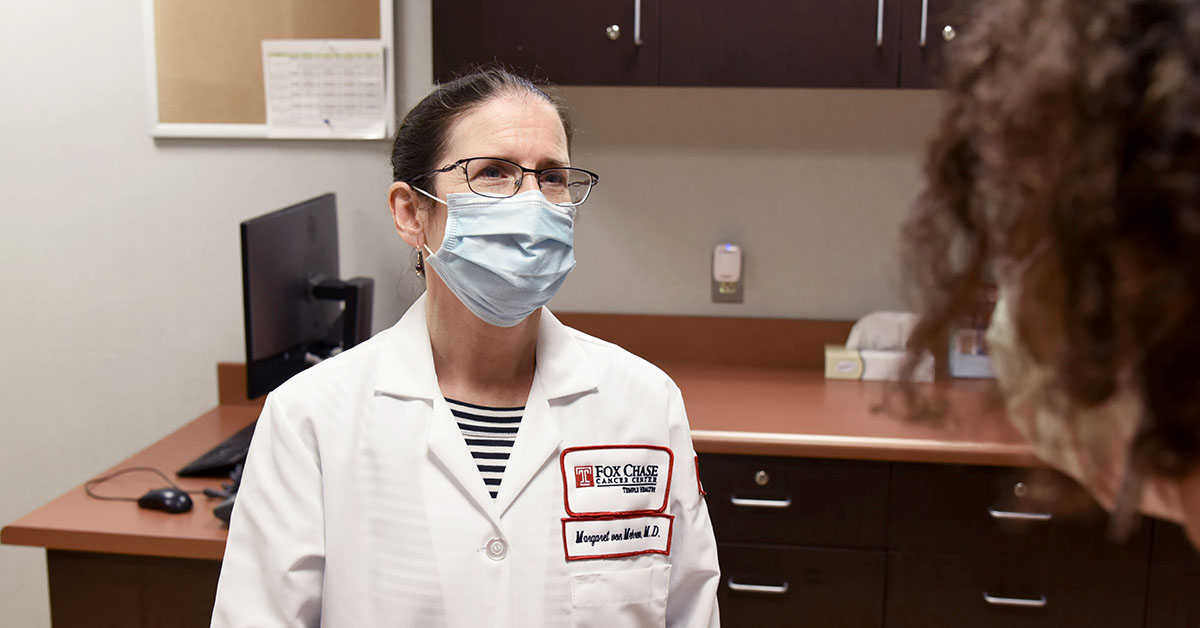
PHILADELPHIA (September 17, 2021)—Results from the phase 3 INVICTUS clinical trial show that the drug ripretinib, also known by its brand name Qinlock, provides clinically meaningful improvement in overall median survival for patients with gastrointestinal stromal tumor (GIST) when compared with placebo.
The INVICTUS study is a global, double-blind, randomized trial that led to the approval of ripretinib, a switch-control kinase inhibitor. The drug, which was developed by Deciphera Pharmaceuticals Inc., is approved as a fourth-line treatment for adult patients with advanced GIST in the United States, Canada, Australia, Hong Kong, China, and Taiwan.
“This study was essentially a follow-up on the initial phase 1 study to see if ripretinib can control disease better than the standard of care, which when there’s no effective therapy, means many patients will go on to hospice and not receive therapy,” said Margaret von Mehren, MD, first author on the study, chief of the Division of Sarcoma Medical Oncology, and physician director of the Office of Clinical Research at Fox Chase Cancer Center.
She will present a video poster session on these latest updates at this year’s ESMO Congress 2021, which started on September 16.
“The INVICTUS study began in January 2018 and patients were accrued through November 2018. This is an update from the original presentation in 2019, where there have now been an additional 19 months of long-term follow-up,” von Mehren said.
In this study, 128 patients with advanced GIST who were previously treated with at least imatinib, sunitinib, and regorafenib were randomized and given either ripretinib once daily or a placebo. Upon disease progression determined by blinded independent central review, patients on the placebo could cross over to ripretinib.
The study found that ripretinib, taken once daily, significantly improved median progression-free survival from one month with a placebo to about six months with ripretinib. Additionally, it reduced the risk of disease progression or death by 85%.
“One of the things that was surprising was that there was a clinically meaningful improvement in overall survival. That hadn’t really been seen in any of the trials for second- and third-line agents tested in GIST,” said von Mehren. “Data from the 19-month follow up show that patients who were on placebo had a median overall survival of about 6.3 months versus those who started on ripretinib with 18.2 months.”
Additionally, von Mehren said ripretinib was well tolerated by patients. The most common treatment-related adverse events included alopecia, myalgia, and nausea.
“This study demonstrated great efficacy. The question in my mind today is, ‘Is this something that is going to be best utilized in patients as fourth-line therapy or will using it earlier be better for patients because it prevents or delays the development of resistance that we see with other drugs,’” said von Mehren.